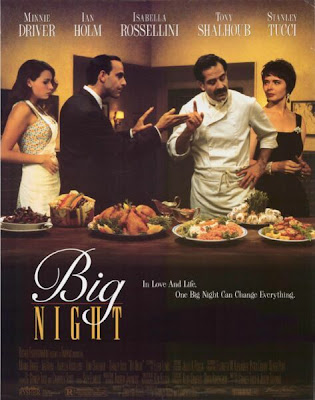
I just reread my second-ever Type and Tonic post, "Yo Hablo Español?," and, being in a reflective mood, want to, well, reflect.
More than anything else, the slow-and-painful process that is learning another language has been my obsession and my cross in Buenos Aires. In my "Yo Hablo Español?" entry, written in October 2007 during my first week in Buenos Aires, I realized that my vision of a quick and painless immersion in the language—which would result in total fluency—had been a pipe dream. Working at an English-language newspaper, as I realized immediately, is not a very good way to learn another language. You're surrounded by the mother tongue, your friends are native English-language speakers, and you end up speaking mostly English. Yes, the paper is also a community that reaches Argentines—all my non-jazz-related Argentine friends come from offshoots of this network—but you have to work against the grain to make real inroads into their worlds.
Buenos Aires, like any other big city in the world, is filled with a lot of busy people who have scant time to take a Spanish-mangling foreigner under their wing. I've heard many people who travel say things like, "oh, the people are so friendly," "it's so easy to get to know people there," and other smiley phrases that make the residents of a given place seem like happy-go-lucky idiots who have nothing better to do than to stop their lives for the benefit of the eager American or European backpacker.
I should soften my last sentence. First, away from cities, people do tend to be friendlier and more welcoming. (That is unless it's one of those towns where no one "from away" is welcome.) Second, if you're just traveling through, it's easy to put up with you for a night; if what you want is a more lasting friendship, than that's an issue that takes time and sacrifice and interest and many other things. I don't think anyone owes anyone else friendship, and frankly the people of Buenos Aires are probably more open to befriending a foreigner than the people of New York would be. What I want to say is, in short, that believing I could just move to a place, immediately make local friends, and learn to speak the language perfectly in the space of a few months was impossibly naive.
What I have gotten has taken time. There's no doubt my Spanish has improved. I feel like it flows now. When I speak it, I speak it without translation. Yet, I'm also aware that there are many nuances to this thing called fluency. I am now regularly interviewing people in Spanish, I live with an Argentine, I carry about most of my daily business in Spanish, I am researching two (hopefully) feature-length articles in Spanish. However, it's not natural, and I don't think it ever will be. When I read literature, I'm reading the dictionary constantly. When I hang out with a bunch of Argentines, I get lost when they speak to one another. I could get past these obstacles eventually, but I'd need more time than I'm willing to spend. I'd need there to be a more compelling reason for me to be here than simply learning the language. I'll try my damn hardest for the rest of my time here to keep advancing, and I'll leave fluent but far from perfect.
Because learning the language is such an important part of my life here, I get irrationally offended when anyone maligns my ability to speak and irrationally happy whenever anyone compliments it.
On Monday night, I was in a bar in the oh-so-trendy Palermo Hollywood neighborhood of Buenos Aires and almost lost it. I was sitting at a table with one of my roommates and started to order, when the waitress said, "I can speak English," to which I replied, "bueno, prefiero hablar castellano." Now, the waitress was polite about it and spoke with me in Spanish, but the damage was done. I've been in this country for six months, and this woman was demeaning my ability to do something as simple as order food. The bar was loud and packed, and I can see how a waitress might tire of a yankee accent in that setting—but it ruined my night. I was ready to pull a Jack Nicholson-in-
Five Easy Pieces, and throw everything off the table as I sneered, "between your knees."
Those are the worst moments I have in Buenos Aires—even writing about it now makes me feel bad—because they seem to undermine everything I've done here. It's as if she said, "the last six months of your life were spent in a worthless pursuit and the longer you stay here, the more worthless it will be. Go back to New York, pretend you never came here, and don't come back again."
Learning a language is humiliating, especially when you care deeply about succeeding at it. I look back on the many fits and starts of learning this damned thing, and I have regrets. Why didn't I spend a summer when I was younger in a Spanish speaking country? Why didn't I take a year in college and study abroad in Spain, where I would have been surrounded by other students and could have integrated into Spanish-speaking life much more easily?
These regrets, luckily, are passing. I wouldn't go back and change much. It's just up to me now to keep plugging along at this involving, ever-so-frustrating process.
Update: Immediately after posting, I was surfing the web and suddenly had a desire to hear what David Foster Wallace sounded like (I've read some of his stuff and seen his pony-tailed image, but never heard him). That took me immediately to
this video which has Wallace addressing the humiliation that comes with not knowing the native language. (My humiliation has more to do with failure at learning it, but the themes resonate nonetheless.) I think I'll resolve from now on, as Wallace quotes Beckett, to "fail better."
 A quick post to let T&T readers know that not only has my interview with Argentine pianist and band leader Guillermo Klein been published at All About Jazz, but also the site has taken the opportunity to assemble an entire Guillermo Klein Day. Accompanying my interview are John Kelman's review of Guillermo's new album, Filtros, which will be released tomorrow, and a free MP3 download of the opening track, "Va Roman."
A quick post to let T&T readers know that not only has my interview with Argentine pianist and band leader Guillermo Klein been published at All About Jazz, but also the site has taken the opportunity to assemble an entire Guillermo Klein Day. Accompanying my interview are John Kelman's review of Guillermo's new album, Filtros, which will be released tomorrow, and a free MP3 download of the opening track, "Va Roman."























